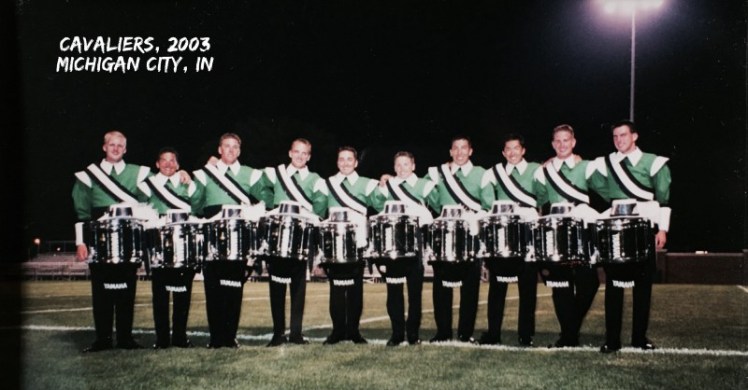In the spirit of 2017 WGI Finals, I’ll be sharing one tip each day this week on how you can give your best performance. The following is an excerpt from a previously published post on Medium.
You’re on the bus. You have 15 minutes before arriving at the lot, and then it’s time to perform like a champion. Good thing you read this beforehand.

Performing is something I’ve always enjoyed, and I learned a lot during my first summer tour of drum corps in 2001. Something changed, and it wasn’t “just for fun” anymore — this was serious.
Have you ever wanted to do something right so badly that it actually got worse?
For me, I made the mistake of not switching from “practice mode” to “performance mode.” In practice, I was constantly listening and thinking, critiquing myself and narrating what I would do differently the next repetition. However, you shouldn’t be talking to yourself in performance mode — you’re performing, remember?
I finally learned how to shut that inner monologue off in my head, and my approach to walking on stage completely changed. It was a process, but I figured out a lot over four summers, two of which were DCI World Championship titles. These lessons were a large part of my foundation as I continued life as a professional musician, and the lessons that I now share with my students today.
Whether you’re at a weekend audition, football game, BOA Grand Nationals, or DCI Finals, here are my tips on how to perform like a champion.
1. Every Rep is a “Show Rep”
“Rep” is short for “repetition,” and I often ask my students, “What are we trying to accomplish through these repetitions?” Answer: improvement and consistency. We do this by logging correct repetitions. “Do it right so many times you can’t do it wrong.”
Young players often make the mistake of “turning it on” for the performance. My good friend, Joe Roach, talks about the “output of energy,” and figuring out how to keep it constant. You hear people say, “You will perform the way you practice,” but as the performer and teacher, that translates to, “Practice the way you want to perform.” That means you need to be “turning it on” in rehearsal when there’s no one in the stands.
Going through the motions? Getting distracted? Caught off guard for the start of a repetition? There’s a chance the same will happen in performance. When students say, “Wow, that’s A LOT better than how we’ve been rehearsing!” they consider it a success. Instead, consider the perspective that it’s a failure; think of how much better it could have been. Also, realize you were lucky. It could have swung the same amount in the other direction. It could have been a lot worse.
“Practice the way you want to perform.”
When you change your thought process or behavior for the performance, the outcome becomes an unknown. Sometimes people are confused when I say, “Don’t try harder for the performance.” That doesn’t mean you shouldn’t care. It means you should be trying your best in every rehearsal up to that point.
Thinking of the show as just another rehearsal relieves a lot of the unnecessary, self-created pressure. One thing you see world class level players do is always practicing at a “10”, every single rep.
If you want to perform at a “10,” you’ve got to practice at a “10.”
Action
Thanks for reading! 🙂 If you enjoyed it and know someone that has an upcoming performance, use the social media icons below to share. Would mean a lot to me and it helps other people see the story. Thanks!
-Huei

Hello mr .pan. It’s emily from jymp. My mother does not believe me when I say you gave me a solo so I’m just emailing you to clarify if that is a negative or a positive. Thank you have a good weekend and I’ll see you one Monday.
LikeLike